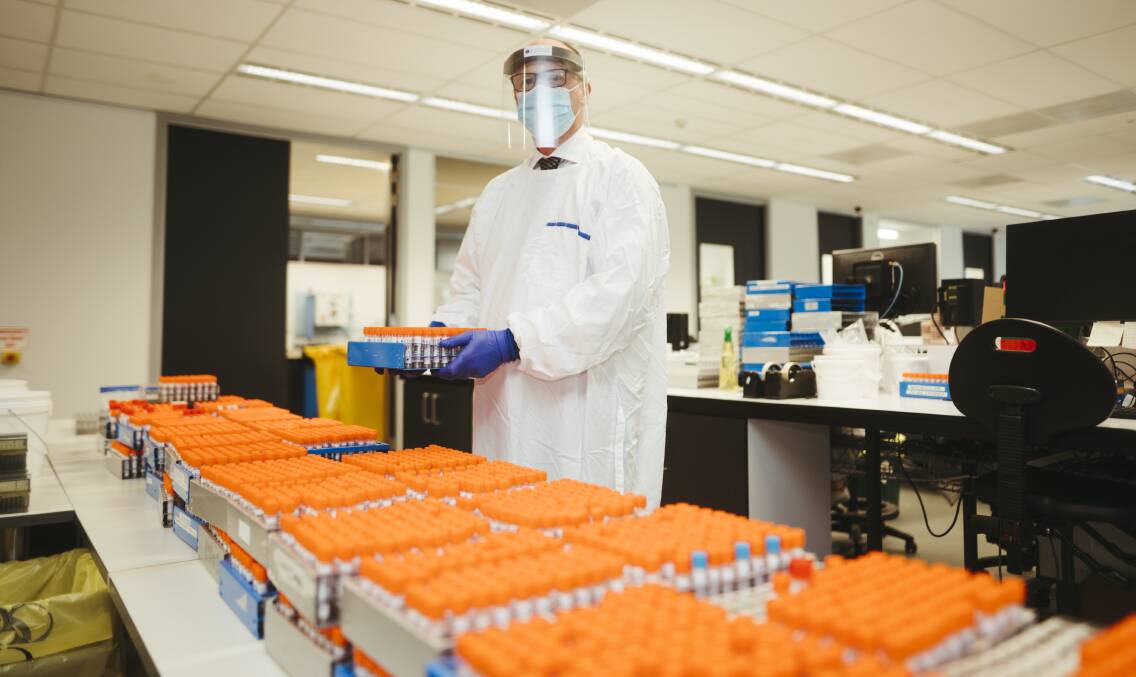ACT Health has asked people to stop coming to the emergency department in non-emergencies as it struggles with high numbers of COVID hospitalisations.
There were 171 people with COVID-19 in hospital in the 24 hours to Sunday 8pm.
Of those, five patients are in the ICU and three are on ventilation.
The ACT recorded 887 new COVID-19 cases. Of the new cases, 112 were aged over 65.
Sunday's new cases by age group
- 0-4 years: 36
- 5-11 years: 48
- 12-17 years: 50
- 18-24 years: 79
- 25-39 years: 255
- 40-49 years: 125
- 50-64 years: 182
- 65+ years: 112
- Total: 887
The ACT's COVID-19 death toll remains at 84.
ACT Health has warned Canberrans that emergency departments are "extremely busy [with] very high numbers of COVID and non-COVID patients as well as staff off with illness".
"Our emergency departments are extremely busy," it said.
"Please keep the emergency department for emergencies."
Other options for urgent, non-life-threatening care:
- Walk-in Centres - waiting times
- Your GP healthdirect: 1800 022 222
- CALMS: 1300 422 567
- National Home Doctor Service: 13 74 25
COVID-19 vaccinations
- Aged 5-11 years (1 dose): 80.6 per cent
- Aged 5-11 years (2 doses): 69.7 per cent
- Aged 5+ years (2 doses): 97.4 per cent
- Aged 16+ years (3 doses): 77.7 per cent
Around Australia
Australians with previous COVID-19 immunity have been warned to be on alert again as early research into the virus' latest variants suggests an ability to evade past protections.
Omicron subvariants BA.4 and BA.5 are quickly becoming the most dominant strains of coronavirus in Australia and will likely push the country towards a third Omicron wave.
In places including Western Australia, Victoria, NSW and the ACT, residents are required to test and isolate if they develop symptoms again 28 days after recovering from the virus.
Antiviral medications have also been made available to vulnerable Australians who test positive to the virus to prevent them from developing severe disease.
NSW
- Deaths: 5
- New cases: 9761
- Hospitalisations: 2169
- ICU: 64
Victoria
- Deaths: 18
- New cases: 10,251
- Hospitalisations: 821
- ICU: 35
- Ventilation: 9
Queensland
- Deaths: 0
- New cases: 6682
- Hospitalisations: 914
- ICU: 18
Tasmania
- TBA
Northern Territory
- Deaths: 0
- New cases: 469
- Hospitalisations: 43
- ICU: 1
Western Australia
- WA no longer publishes daily updates
South Australia
- SA no longer publishes daily updates
Our coverage of the health and safety aspects of this outbreak of COVID-19 in the ACT is free for anyone to access. However, we depend on subscription revenue to support our journalism. If you are able, please subscribe here. If you are already a subscriber, thank you for your support. You can also sign up for our newsletters for regular updates.








